Shell targets smooth ride in India's huge engine oil market
The market for engine oils, required for lubrication of the internal combustion engines (ICEs) to ensure that powertrains run smoothly, is equally big and is consistently growing year on year.
Global lubricants major, which is bullish on the CV, passenger car and two-wheeler segments in India with its technology-heavy products, looks to increase its market share with more customer education as well as training of local mechanics ahead of the BS VI era.
The Indian automobile industry is buzzing and is one of the most important markets that automakers worldwide are betting on for future growth. While the passenger vehicle segment crossed the milestone of three million units in FY2016-17 for the first time, the two-wheeler industry (excluding electric vehicles) surpassed that of China to become the largest in the world during the same period. India’s commercial vehicle segment too remains one of the top markets in the world.
The market for engine oils, required for lubrication of the internal combustion engines (ICEs) to ensure that powertrains run smoothly, is equally big and is consistently growing year on year.
Engine lubricants play a critical role in ensuring smooth functioning of the engines, longer life span, reduction in oil drainage intervals and part(s) replacements, boosting fuel efficiency, and other areas.
As such, in a market where vehicle production and sales is on the upswing, demand for engine oil and lubricants will always be strong. Which is why global lube major Shell is so bullish on the Indian automotive market.
According to Neeraj Bhatia, chief marketing officer, Shell Lubricants India, the annual engine oil consumption in India is in excess of 2.5 billion litres (including the aftermarket) and is growing at 2-2.5 percent per annum.
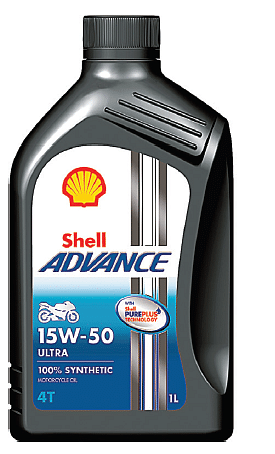
“We have a five percent market share in the Indian automotive industry. Over the past three years, we have grown in double digits (in the lubricants business) in the markets we operate. We are seeing a very strong traction around our premium GTL products,” Bhatia told Autocar Professional in an exclusive interview recently.
However, India remains a market full of customers with ultra-cost-sensitive decision-making and buying habits that pose a serious challenge. According to the top officials at Shell, vehicle owners do not pay adequate attention to the engine oil poured into the engines.
Elaborating on these challenges, Bhatia says, “We need to educate and work with the customers and demonstrate the benefits. Let’s consider the trucking business. We have a product that saves fuel. At the minimum, it says three percent savings on the pack. This for a fleet operator works out to be Rs 45,000 per truck per year. The test data over six years shows six to nine percent savings. While we are selling this product in the market, there are users who are able to save six to 10 percent in the field. Last month, we met an operator who said he was saving up to 15 percent on his fleet of 20 vehicles. So if you just triple that saving, it becomes close to Rs 150,000 per truck per year. This is not the kind of money he makes in the trucking business. This is what is our primary target – to solve this puzzle of how do we go out and prove the benefits of our products. Our vision is to transform the trucking sector and pick up the money lying on the table and become much more profitable.”
According to Bhatia, Shell lubricants (Advance, Helix and Rimula brands) offer stronger engine protection, longer oil drain intervals and better fuel efficiency. “So, all in all, its much more beneficial for the customers. If you pick up the price and divide it by the number of kilometres, you would realise that you are charged less per kilometre,” he adds.
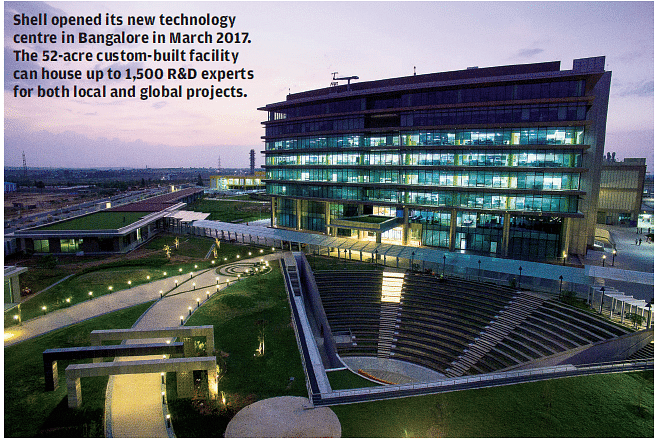
ACCELERATING INDUSTRY-WIDE SAVINGS
Giving his outlook on the savings that can be made across the industry, Siva Kasturi, Asia Pacific regional OEM manager, Shell Global Lubricants, explains, “We talk about fuel economy of vehicles the same way the industry looks for energy efficiency. So we engage with injection moulding, CNC machine tool manufacturers, wind turbines and others. Now while we talk about saving three percent (on annual cost of ownership) on trucks, it can be replicated in the energy industry where we look at saving five to six percent via energy efficiency. This can lead to massive savings across the industry.”
“For example, consider the cost of running a 10,000-megawatt power plant. Now calculate saving three to five percent of those costs. That’s where we have all these synthetic oils, GTL-based (gas-to-liquid) turbine oils, next generation gear oils and hydraulic oils. With these, we not only meet the OEM specs but we also claim that our oil can undergo 13-14 times of the stress levels of the conventional OEMs tests. We have benchmarked our products at a different level and we believe that the industry is yet to understand those things. So that’s an area where we believe that it’s beyond energy efficiency and fuel economy, it is also about component reliability, which includes replacement of parts,” says Kasturi.
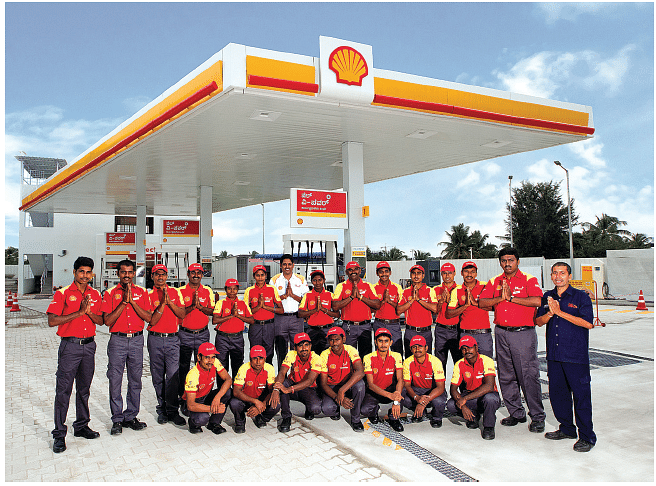
Explaining a case study on off-highway equipment, he adds, “In a typical excavator, you have this pin-and-bush application. We had simply replaced the existing grease with our product. Within a span of eight months, we observed that the pin and bush life had increased by 50 percent, which is a huge cost saving. Secondly, we had reduced the consumption of grease by almost three times. Typically, in the mining industry, they consider the total amount of gravel mined per hour as the cost. So the costing is more than US$ 600 per hour, which is far lesser than the industry norms.”
According to him, the company offers customised solutions for different applications. “We have different products for dumpers, excavators, wheel loaders, dozers, and others. The whole idea is how to communicate our offerings and value propositions to the industry and the end users,” says Kasturi.
CONSULTATIVE APPROACH
Shell follows a theme called ‘Together Anything Is Possible’. Within its purview, it looks to partner with the industry stakeholders such as OEMs, suppliers, industry bodies, and others to co-engineer and deliver superior and long lasting products.
The company had conducted a survey in the past wherein it spoke to more than 800 end customers in the industry across seven countries including India. “That survey pointed out that more than 58-60 percent of end consumers believe that lubricants can hardly make any impact in terms of the costs associated with running a vehicle. About seven percent people still believe that lubricants can make an impact in the form of creating annual savings by more than 25 percent (by reducing the total cost of ownership, maintenance costs, filtration costs and others),” underlines Kasturi.
According to him, owners can save up to 30 percent if engine lubrication is properly taken care of. “Beyond the lubricants, we also work with the OEMs and end users under our consultative approach. Besides Shell and our end consumers, we want to work with the OEMs, industry bodies, and others to jointly contribute to the larger challenge of reliability and reducing the total cost of ownership,” he adds.
Aligned with its approach to partner, Shell is now tying up with various OEMs and suppliers to prepare the right engine oils for the incoming BS VI emission regime.
According to Kasturi, transforming the composition of lubricants for BS VI-compliant engines entails some changes from the additive chemistry perspective. Without disclosing much, he adds, “These requirements will come and will be dealt with accordingly. The whole industry is going to shift with appropriate requirements. We feel that petrol lubricants will perform better in the BS VI scene.”
“This is not only a lubricant challenge but also a hardware challenge. We won’t be able to name the OEMs but we are partnering with a host of OEMs in the country to deliver on those promises in the wake of the BSVI emission norms. This is happening across all segments,” Bhatia adds to that.
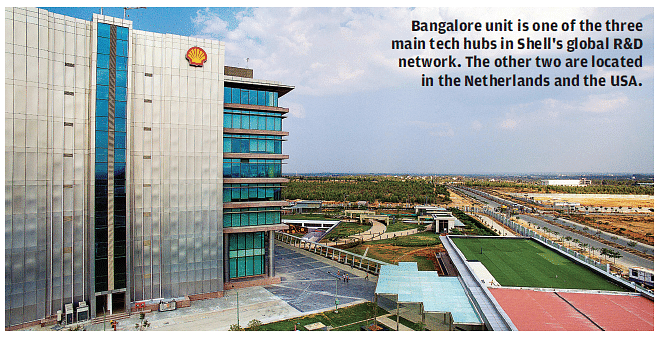
ORGANISING THE AFTERMARKET
The company says that it is running one of the largest mechanic programmes across the country wherein it is in touch with almost 50,000 mechanics on a one-to-one basis.
“We have several programs running for them. While we give them information and educate them, we take critical information from them too. We want to go ahead with a digital story. We want to digitise these mechanics. Right now, they are at a lower strata of the society. We can upgrade them by educating them and by helping them prosper. So this is a larger aspect to what we are doing. This is not CSR. This is genuine work-on-ground and understanding the basic needs of the mechanic. He needs this support, he needs to be upgraded and then later he will help build the brand,” Bhatia concludes. This is another path Shell is charting for growth in India.
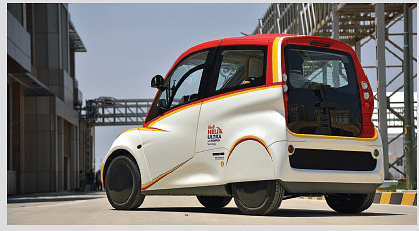
Shell’s technology centre in Bangalore, which was inaugurated in March this year, is set to be a key cog in its global R&D ecosystem. Built on a 52-acre plot, this facility can house up to 1,500 experts for its worldwide innovative energy projects like liquefied natural gas, subsurface modelling, bitumen and water technology, among others.
Among the many interesting technologies on display is Shell’s IH2 technology which can help generate energy resources from agricultural and municipal waste. Shell India is understood to be testing a BMW car and a Toyota SUV both running on diesel extracted from waste. The vehicles are said to be running smoothly. This, perhaps, is the need of the hour as it could solve two of biggest issues — growing volume of waste and high oil imports.
The other big attraction on display when a team from Autocar India visited the tech centre was the Shell Concept Car made in association with renowned automobile designer Gordon Murray, who is also an Autocar Professional columnist.
This cute little car is designed by Gordon Murray, who is better known for his contribution to Formula 1 and in being a key player in designing the McLaren F1 supercar. This car uses a three-cylinder, 660cc petrol motor sourced from Mitsubishi and a gearbox from Smart. The engine was enhanced to achieve the very green 38 kilometres per litre, as claimed by Shell. A special engine requires special care, so partner Shell made a tailored engine oil from its Shell Helix Ultra to come up with the thinnest oil (OW 12) ever made by the company. This helped the car deliver an extra 5 percent more fuel economy.
We took the concept car on a short spin around the factory premises. Getting inside is rather dramatic as the front of the car opens like a clamshell, and this includes the windscreen. The seat is placed in the middle (like in the McLaren F1), the gearknob is on the right and door release button on the left. There were no air-con controls in the car. Kevin Doyle, who has tested this car extensively, said that since the car was made for the UK which usually sees cold weather an AC was not fitted. Also, with an AC, achieving 38kpl would have been difficult.
Thumb the starter and the car thrums into life and sounds more like a two-cylinder at idle with a fair share of vibrations from the engine. As we start moving, the car also jerks at slow speeds. Kevin informed us that it's due to the Automated Manual Gearbox sourced from the Smart car, which had developed a problem. After all, the car was tested extensively at the Millbrook Proving grounds in the UK and was definitely not at its prime. But Kevin had some interesting numbers — this little car can do 156kph and can go from 0-100kph in 15.8sec.
(This article was first published in the August 15, 2017 print edition of Autocar Professional)
RELATED ARTICLES
RSB Group Prepares for Hyper-Growth: New Markets, Tech and Mission ₹10,000 Cr
From a small workshop in Jamshedpur to an engineering group with global reach, RSB Transmissions is preparing for its mo...
Beyond Helmets: NeoKavach Wants to Make Rider Airbags India’s Next Safety Habit
As premium motorcycles proliferate and riding culture evolves, an Indo-French venture is betting that wearable airbags, ...
Inside Mahindra Last Mile Mobility’s Rs 500 Crore Modular Platform Strategy
Mahindra Last Mile Mobility has launched the UDO, an electric three-wheeler built on a new Rs 500-crore modular platform...






 09 Sep 2017
09 Sep 2017
 20221 Views
20221 Views





 Darshan Nakhwa
Darshan Nakhwa



 Shahkar Abidi
Shahkar Abidi

